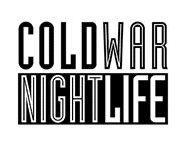Propaganda’s “Mabuse” debut single hit the shops around the same time as Depeche Mode’s “People Are People.” Both were influenced by industrial music and the evolving preferences of the alternative dancefloor. Like SPK’s “Metal Dance,” which preceded their path to the charts, they put a polish on the harsher sounds of the genre, but these March 1984 releases were as different as chalk and cheese. “People Are People” was catchy but burdened with lyrics as wet as the English Channel. “Mabuse” was sleek, sophisticated, referenced Expressionist film and Faust, and had Teutonic cheek bones.
In the UK charts, the boys from Basildon had the home advantage, but the challengers from Germany could not be ignored. Over in Notting Hill, Propaganda built on their pop foundations with an edifice that would outlast the commercialised industrial trend in the mainstream. The result was an album, A Secret Wish, that represents the very best of the 1980s: potent and poignant.
Forty years later, Propaganda are back, but they are not living in the past. The gap involves disputes with the label, changes in the line-up, a merger with the original rhythm section of Simple Minds, and trademark claims – but let’s not rehearse those. The present brings back together Ralf Dörper and Michael Martens to create the music that they want to make today.

Some will be unhappy that Official Propaganda isn’t picking up where A Secret Wish left off. The Provisionals of xPropaganda tried to do that, recruiting producer Stephen Lipson to the cause, but you can’t bottle lightning. A Secret Wish was of its time, and it can be remade no more than the Berlin Wall can be restored.
Don’t go looking on the self-titled Propaganda for a new “Duel” or “p:machinery.” That is neither the group’s ambition nor interest. Dörper and Mertens have constructed a sound suited to 2024, in which few care for the sampled metal of “People Are People” or the sirens of SPK. What is on offer is a mature and considered set of pop material comes across darker than much of the preceding two albums.
There is also a new vocalist on the team. Thunder Bae is not a Canadian town on the shores of Lake Superior but a Dusseldorf-based Brit from another generation. She adds dimensions of glamour and intensity to the instrumentation and words contributed by the Mertens amd Dörper.
So, what of the material? Most of the tracks pressed into the grooves are originals, but there is a new version of “Vicious Circle” from the last album, 1234. There is also a cover of “Wenn Ich Mir Was Wuenschen Duerfte” [EN: “If I Had a Wish”], the German standard popularised by Marlene Dietrich. These selections provide a link to the band’s past, directly and indirectly, but the true core is in the new songs.
The first single to be released from Propaganda, “Purveyor of Pleasure,” demonstrated the group’s approach. The song is invested with throbbing, sparse electronics, and a dramatic tension that could open any Bond film.
“They Call Me Nocebo,” which followed, takes pole position in the track listing. A “nocebo” is the opposite of a placebo – an otherwise neutral substance that may cause the symptoms of a patient to worsen because they believe it is harmful. It’s also the name of a film starring the Bond girl, Eva Green. There could be a theme developing here.
Propaganda is an album of cinematic sweep, touching on dance, art, and sensuality. In that respect, it shares plenty of DNA with A Secret Wish, but it stands on its own merits. It is a sturdier team that has pieced it together – one that isn’t competing with Depeche Mode for spaces in the charts or Paul Morley over his cover art scrawlings. Propaganda have taken chances with this album, but they have succeeded to make something vital. Why live in the past when you can live on the edge?


